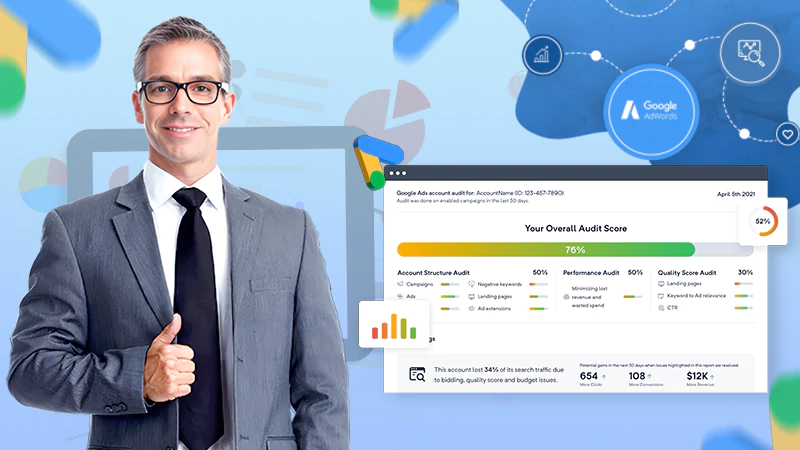Ethical Data Collection and Utilization of Tech Companies: A Critical Analysis
The tech industry generates and manages vast amounts of data every day. And with the rise of newer technologies such as AI and machine learning, data collection, and utilization have become crucial processes.
Along with such advancements comes the evolution of ethical concerns surrounding these practices.
Check out these data collection and data use ethics observed by tech companies, and steer yourself or your business away from the possible consequences of unethical data management.
Ethical Considerations of Data Collection
Several data protection regulations and laws are in place to regulate and ensure ethical data collection practices. However, these vary from a wide array of rules and standards that tech companies must religiously adhere to.
Privacy is equally essential in data collection. Hence, informed consent is a critical ethical consideration when collecting data.
Companies – especially those in the tech industry – must obtain explicit consent from individuals before collecting their data.
And as mandated by the law, such consent should be specific, informed, and obtained in a language that individuals understand. Without informed consent, data collection practices can become unethical and potentially illegal.
Additionally, companies must ensure their users or clients have a clear understanding of how their data will be used. Here are some critical data collection ethics that even the most reliable VPN for Windows must take note of.
- Privacy, consent, and data security must be your top priorities when collecting data.
- Collect and use data in ways that minimize harm.
- Be sure to protect privacy and confidentiality.
- Always incorporate ethical considerations into your entire data collection process.
- Take into consideration the potential implications on vulnerable populations.
- Be mindful of the potential data ownership, access, retention, and destruction issues.
Ethical Considerations of Data Utilization
Similar to data collection, the misuse of collated data can have severe consequences, including discrimination, profiling, and privacy invasion. Hence, be sure to take those into consideration before using data in any way.
Transparency is critical in data use.
Tech companies, specifically, must be clear and concise about how they’re using data. In addition, they must ensure that their target market or audience clearly understands how their data is used.
This includes informing individuals about any automated decision-making processes or profiling that may be taking place.
Moreover, tech companies must proactively take steps to prevent bias or discrimination in their algorithms and machine learning models.
Data utilization practices should be ethical and used to benefit society rather than discriminate or harm individuals. Here are some critical data use ethics to take note of.
- Accuracy, fairness, transparency, and accountability must be your top priorities when using any data.
- Data should be used to respect individuals’ privacy rights and avoid discrimination or harm.
- Data users should be transparent about their use of the collated information.
- Provide individuals with meaningful opportunities to access and control their data.
- Ethical considerations should also be incorporated into developing and deploying data-focused algorithms and AI systems.
- Always consider the potential implications of data utilization practices on vulnerable populations.
- Proactively take actions to minimize harm and maximize benefits.
- Whenever unsure, refer to ethical frameworks, including the Fair Information Practice Principles and the General Data Protection Regulation.
Case Studies: Examples of Ethical and Unethical Data
Ethical data collection and utilization practices are of the utmost importance for tech companies because they deal with sensitive information.
As part of the efforts of tech companies like Google, Facebook, and Amazon to continuously provide satisfactory services, they collect user data. They then use the collated information to make more informed business decisions.
And regardless of their conscious efforts, these tech companies have been involved with issues of unethical data collection and use practices in the past.
In 2016, this search engine giant was investigated by several agencies on the grounds of collecting the location data of Android users without their consent.
Google then ended up losing this legal battle and paying $22.5 million (FTC).
This widely popular social networking platform has also been the center of several data-related controversies.
In 2018, for instance, Facebook faced two lawsuits. One was from Instagram users who claimed that their photos were stolen without permission (BBC News).
The other was from shareholders who argued that Facebook’s handling of user data contributed directly to stock price declines (The Washington Post).
Amazon
The multinational tech company has also been accused of using unethical practices when collecting user data.
In 2015, Amazon released the Echo Show – a device that enables users to view videos from streaming platforms like Youtube. Apparently, it also records conversations within earshot of it (The Verge).
Conclusion
There’s no denying that tech companies have added significant value to our ways of living – from communicating to working to thinking.
However, the ethical implications of their data collection and utilization practices can be concerning. Hence, it’s crucial for us to recognize the red flags as well as to address such issues.
Through a critical analysis of ethical data collection and utilization practices, we’ve seen how companies can prioritize profits over people, leading to privacy breaches and manipulative advertising.
In short, ethical data collection and utilization should be a top priority for tech companies.
And as individuals or users, we are also responsible for being conscious consumers and supporting companies that prioritize ethical practices.
And at the end of the day, by practicing these ethics, we get to fully optimize and take advantage of the full potential of technology while also protecting our fundamental rights and values.
The Challenges and Benefits of Removing Negative Online…
Unlock the Simplest Way to Access LaSRS Login…
Strategic Wins: How SafeOpt Can Boost Your Online…
5 Reasons Why Marketing Matters in Business?
Google Ads: What Are the Basic Checklists to…
The Crucial Role of Press Releases in a…
8 Best Tech Tips to Implement for Better…
Fax Machines in the Digital Age: A Sustainable…
Breaking Barriers: The Power of Business Translation Services
Why Do Businesses Need a Dedicated Mobile App?
The Role of Onboarding in Improving Employee Retention…
3 Major Benefits of Onsite IT Support












